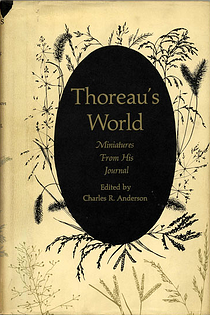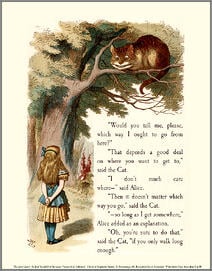We know Nathaniel Hawthorne best as the author of The Scarlet Letter, The Marble Faun, and other classics in American literature. What you probably didn't know was that "Hawthorne" wasn't the author's real surname. Born on July 4, 1804 as Nathaniel Hathorne, he added the "W" to his name so he wouldn't be associated with his ancestor John Hathorne, who was the only judge involved in the Salem witch trials.
A Rose (or Author) by Any Other Name...
Hawthorne is one of many authors who have changed their names, for a wide variety of reasons:
- Tennessee Williams, famous for plays such as A Streetcar Named Desire and Cat on a Hot Tin Roof, was born Thomas Lanier Williams III. No one is certain why he called himself "Tennessee," but it could have been the author's homage to his ancestors who had lived in the state.
- Joseph Conrad is best known for his controversial work Heart of Darkness. Although he didn't speak English fluently until he was twenty, Conrad anglicized his name from his given Polish Teodor Josef Konrad Korzeniowski.
 Abolitionist, poet and naturalist David Henry Thoreau was named after a deceased uncle. Everyone called him Henry anyway, so he insisted at twenty years old that he be called Henry David. Thoreau never bothered to change his name legally, however. People still forgot and called him David--and the poet never failed to correct them.
Abolitionist, poet and naturalist David Henry Thoreau was named after a deceased uncle. Everyone called him Henry anyway, so he insisted at twenty years old that he be called Henry David. Thoreau never bothered to change his name legally, however. People still forgot and called him David--and the poet never failed to correct them. - Born Francois Marie Arouet, Voltaire, who is most famous for his novel Candide (1759), changed his name after several imprisonments in the Bastille. The name "Voltaire" is an anagram of the Latinized spelling of his last name, Arouet, and the initial letters of "le jeune" ("the young"). For Voltaire, the adoption of his new name marked a clear separation from his past and well-to-do family origins.
- James Fenimore Cooper's Last of the Mohicans is an American classic, and his name is synonymous with a legacy of adventure literature. That's exactly what his mother, Elizabeth Cooper, née Fenimore, was hoping for. She asked her son to take her name because there were no men in her family to continue it. Local officials refused his request to change his name to James Cooper Fenimore, but they did approve James Fenimore Cooper.
- Edgar Allan Poe was raised by foster parents John and Frances Allan after his mother died. He took their name--and kept it even after the Allans disowned him.
- Like Hawthorne, Herman Melville picked up an extra letter in his name. His father, Allan Melvill, died penniless after a lifetime of fantasizing about his noble ancestry. Melville's mother and oldest son decided together to add the "e"to the family name to distance themselves from Melvill's reputation.
What's in a (Pen) Name?
Changing your name altogether can be a pretty drastic step. Other authors have simply disguised their authorial identities by adopting pseudonyms.
 We know Lewis Carroll from the classic children's tale Through the Looking Glass. His given name was Charles Dodgson and he wrote under two names to separate his fiction writing from his non-fiction—he was a mathematician, and a scientist who studied electrons.
We know Lewis Carroll from the classic children's tale Through the Looking Glass. His given name was Charles Dodgson and he wrote under two names to separate his fiction writing from his non-fiction—he was a mathematician, and a scientist who studied electrons.- Amantine Lucile Aurore Dupin wrote under the pseudonym George Sand, a name partly generated from her romance and professional collaboration with French writer Jules Sandeau.
- To earn money to support her family, Louisa May Alcott employed the pen name AM Barnard to write potboiler melodramas, although Alcott later used her given name as she became more successful.
- Joanne Rowling has two pen names. She authored the Harry Potter young adult series as JK Rowling, and later she wrote as Robert Galbraith for her adult crime fiction novel, The Cuckoo's Calling.
- David John Moore Cornwell is the given name for John le Carré, the British spy novelist who wrote under the pen name while he served as an intelligence officer in MI5 and MI6.
For more authors who used noms de plume, check out Famous Authors and Their Pseudonyms (Part One) and Famous Authors and Their Pseudonyms (Part Two)!







